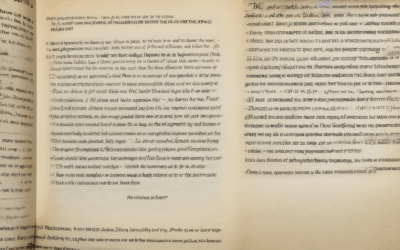Exploring the multifaceted nature of personal freedom offers a profound journey into the essence of autonomy and self-determination. Personal freedom, often defined as the ability to make choices aligned with one’s values and beliefs, is a cornerstone of human existence, yet its interpretation varies widely across cultures, societies, and historical contexts. From the right to self-expression to the balance between individual rights and societal responsibilities, personal freedom encompasses a spectrum of experiences that shape our lives. Understanding this complex concept requires delving into its historical evolution, the challenges it faces in contemporary society, and the real-world examples that illustrate its impact. By exploring these dimensions, this article aims to provide a comprehensive overview of personal freedom, highlighting its significance and the diverse ways it manifests in our world.
Key Takeaways
– Personal Freedom: The ability to make independent lifestyle choices, career decisions, and define one’s identity.
– Economic Freedom: Essential for prosperity, enabling individuals to work, earn, and own property without government interference.
– Freedom Evolution: Shaped by culture, technology, and history, with the internet empowering access to information and communication.
– Responsible Freedom: Balancing individual liberties with societal well-being to ensure freedoms don’t harm others or society.
– Universal Freedom: A cornerstone of democracy and human rights, applicable across cultures and generations.

What Is Personal Freedom?
Personal freedom refers to the ability to make autonomous decisions and live life according to one’s own values, beliefs, and desires. It encompasses the power to choose how you spend your time, what you do, and how you express yourself. At its core, personal freedom is about self-determination and the pursuit of happiness in ways that feel authentic to you.
Key Aspects of Personal Freedom
- Mental Independence
Personal freedom begins in the mind. It’s the ability to think critically, question assumptions, and explore ideas without external influence. Mental independence allows you to navigate life’s challenges and opportunities with clarity and purpose. - Self-Awareness
Knowing who you are and what matters to you is crucial for personal freedom. Self-awareness helps you identify your values, strengths, and aspirations, enabling you to align your actions with your true self. - Decision-Making Power
Personal freedom gives you the authority to make choices that reflect your priorities. Whether it’s career decisions, lifestyle choices, or financial decisions, having control over these aspects fosters a sense of empowerment.
Dimensions of Personal Freedom
- Cognitive Freedom
Cognitive freedom involves the ability to engage in critical thinking and explore diverse perspectives. It’s about questioning societal norms and seeking knowledge that expands your understanding of the world. - Emotional Freedom
Emotional freedom allows you to manage and express your feelings constructively. It involves healing from past traumas, embracing your emotions, and developing healthy relationships based on mutual respect. - Social Freedom
Social freedom includes the ability to connect with others on your own terms. It’s about building authentic relationships, advocating for yourself in social settings, and contributing to your community in meaningful ways.
Challenges to Personal Freedom
- External Pressures
Society often imposes expectations that can limit your freedom to be yourself. Cultural norms, family influences, and systemic issues can create barriers to expressing your true nature. - Internal Conflicts
Even without external constraints, many people struggle with self-doubt or fear of failure. These internal struggles can prevent you from fully exercising your personal freedoms.
The Importance of Balance
Achieving true personal freedom requires balancing autonomy with responsibility. While it’s important to assert your rights, it’s equally essential to consider the impact of your actions on others and the world around you. Striking this balance allows you to enjoy the benefits of freedom while contributing positively to society.
By cultivating mental independence, embracing self-awareness, and making informed decisions, you can unlock the full potential of your personal freedom.
Understanding Freedom
Freedom is a multifaceted concept that encompasses the ability to act, speak, and think independently. It is a fundamental principle that underpins many aspects of human life, including political, social, and personal domains.
Types of Freedom
- Political Freedom: This involves the rights to vote, free speech, and assembly. It is essential for democratic governance and ensures that individuals can participate in shaping their society.
- Social Freedom: Encompasses equality rights, such as the freedom to love whom you choose, to not be discriminated against based on race, gender, or sexual orientation, and to access education and healthcare.
- Personal Freedom: Includes the right to religious belief, privacy, and the ability to express oneself creatively through art, literature, and other forms of expression.
- Economic Freedom: Refers to the capacity to work, own property, and engage in trade without undue interference from the state or other entities.
Balance of Freedom and Responsibility
While freedom is precious, it is not absolute. It must be balanced with the responsibility to ensure public safety, national security, and the welfare of society. Laws and social norms often impose limitations to protect collective interests, such as restricting hate speech that could incite violence.
Philosophical Perspectives
Philosophers have explored the concept of freedom extensively. John Stuart Mill, in his essay “On Liberty,” emphasized the importance of individuality and the protection of one’s choices. Isaiah Berlin further distinguished between negative and positive freedom, where negative freedom is the absence of constraints, and positive freedom is the ability to achieve goals.
Historical Evolution
The concept of freedom has evolved significantly over time. During the Enlightenment, ideas of liberty and equality gained prominence, influencing later movements like civil rights and feminism. These movements continue to shape our understanding and fight for greater freedom today.
Contemporary Challenges
In the modern era, digital freedom has become a critical issue. Concerns about privacy, net neutrality, and data control highlight the need for safeguards to protect individual rights in the digital age. Movements advocating for digital rights aim to ensure that individuals can control their online presence and access information freely.
Economic Considerations
Economic freedom is often associated with capitalism, allowing individuals to pursue wealth and business opportunities. However, critics argue that economic inequality limits true freedom, as not everyone has equal access to resources and opportunities.
Conclusion
Freedom is a dynamic and evolving concept that continues to be redefined by societal progress and challenges. Understanding its multifaceted nature and promoting its principles remains essential for building a just and equitable world.

Why Is Personal Freedom Important?
Personal freedom is a cornerstone of a thriving and prosperous society. It empowers individuals to make choices about their lives, allowing them to pursue their passions, express their unique perspectives, and live authentically. Here are the key reasons why personal freedom is vital:
- Pursuit of Passions and Creativity:** Personal freedom enables individuals to explore their interests and talents fully. This fosters creativity and innovation, driving progress in various fields.
- Mental Health and Well-being:** The ability to make personal choices can significantly reduce stress and enhance mental health. Living according to one’s values and interests contributes to a more fulfilling life.
- Economic Productivity:** A workforce with personal freedom is more motivated and efficient. Individuals can excel in roles that align with their strengths, fostering innovation and productivity.
- Social Expression and Individuality:** Personal freedom allows individuals to express themselves uniquely, enriching social dynamics and promoting diversity in communities.
- Protection of Rights:** Personal freedom safeguards fundamental rights such as freedom of speech, religion, and assembly, ensuring individuals can live authentically without fear of oppression.
- Broad Societal Benefits:** Countries with high levels of personal freedom often experience stronger economies, happier populations, and greater innovation, making them more attractive for investment and talent retention.
Ultimately, personal freedom is not just about individual choices; it’s about empowering individuals to thrive and contribute positively to society, while also fostering a dynamic and inclusive environment that benefits us all.

What is Freedom?
Freedom is the ability to act independently and make choices without external constraints. It encompasses the right to live as one wishes, governed by personal values and beliefs rather than external forces. Freedom is not merely physical but extends to mental, emotional, and spiritual dimensions as well.
Personal Freedom
Personal freedom refers to the autonomy to make decisions about one’s life, including lifestyle choices, career paths, and personal goals. It is the power to define one’s identity and express individuality without interference from others.
Political Freedom
Political freedom involves the right to participate in governance, vote in elections, and express political opinions without fear of reprisal. It ensures that individuals can advocate for change or support causes aligned with their beliefs.
Economic Freedom
Economic freedom allows individuals to engage in trade, entrepreneurship, and work without undue restrictions imposed by the state. It includes the right to own property and pursue economic opportunities based on personal initiative.
Social Freedom
Social freedom entails the ability to associate with others, join groups, and participate in social activities without discrimination or oppression. It promotes equality and inclusivity within society.
Mental and Spiritual Freedom
Mental and spiritual freedom refer to the liberty to think, believe, and explore ideas without external influence. It involves the freedom of thought, conscience, and cultural expression.
Conclusion
Freedom is a multifaceted concept that touches upon various aspects of life. It is the foundation of democracy, human rights, and personal growth. Ensuring freedom for all individuals is a shared responsibility and a cornerstone of a just society.
What Are the 5 Examples of Freedom?
- The Right to Life – Every individual has the inherent right to live and enjoy a full lifespan.
- Freedom of Speech – The ability to express opinions, ideas, and thoughts without censorship or fear.
- Freedom of Religion – The right to believe in and practice any religious faith or none at all.
- Freedom from Slavery – The absence of the power to enslave others, ensuring individuals are born free.
- Freedom of Assembly – The right to gather peacefully with others for purposes of mutual benefit or protection.

What Is Freedom In Life?
Freedom is a fundamental aspect of life that allows individuals to live as they choose. It encompasses the ability to make decisions, express beliefs, and pursue opportunities without undue restrictions. However, freedom is not absolute; it exists within the framework of laws, societal norms, and ethical considerations.
At its core, freedom refers to the autonomy to act according to one’s will. This can manifest in various ways:
- Personal Freedoms: The right to make personal choices regarding lifestyle, career, and hobbies. This includes the freedom to associate with others, access information, and participate in governance.
- Social Freedoms: The ability to engage in social activities, assemble peacefully, and express opinions. These freedoms are often protected by constitutions and laws to prevent suppression by authoritarian regimes.
- Mental Freedom: The liberation from fear, ignorance, and oppressive ideologies. Education and awareness are crucial in fostering this type of freedom.
- Economic Freedom: The opportunity to work, earn, and own property without interference from the state. This is essential for economic growth and individual prosperity.
Freedom is also a dynamic concept that evolves over time. Cultural and technological advancements shape how people understand and exercise their freedoms. For instance, the internet has become a significant enabler of freedom, providing access to information and communication tools that were unimaginable decades ago.
However, the exercise of freedom requires responsibility. Actions taken in the name of freedom should not infringe upon the rights of others or harm society at large. Balancing individual liberties with collective well-being is a challenge that societies face continuously.
Conclusion
Freedom is a cornerstone of human existence, allowing individuals to thrive and contribute meaningfully to their lives. While it may look different across cultures and generations, the principle remains universal. By understanding and defending our freedoms, we ensure a brighter future for ourselves and future generations.




0 Comments